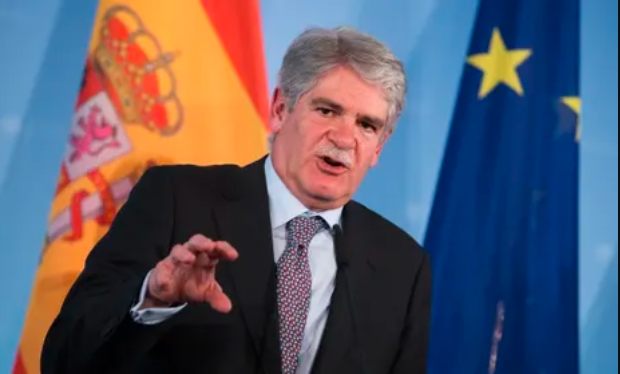The European Union has expressed its appreciation for the Scottish Government’s constructive and cooperative attitude towards the EU, in contrast to the UK Government’s hostile and erratic stance. The EU’s chief Brexit negotiator, Michel Barnier, has reportedly described the Scottish Government as “reasonable and reliable” partners, who share the EU’s values and interests.
Scotland’s desire to rejoin the EU
The Scottish Government has made it clear that it wants to rejoin the EU as an independent member state, after being taken out of the bloc against its will by the UK’s Brexit vote in 2016. Scotland voted overwhelmingly to remain in the EU, with 62% of the voters opting to stay. However, the UK Government has ignored Scotland’s democratic will and pursued a hard Brexit that has damaged Scotland’s economy, society, and international reputation.
The Scottish Government has also been excluded from the Brexit negotiations and decision-making process, despite having devolved powers over areas such as agriculture, fisheries, environment, and justice. The UK Government has imposed a controversial Internal Market Bill that threatens to undermine the devolution settlement and impose lower standards on Scotland.
The Scottish Government has therefore launched a campaign to hold a second referendum on independence, which it claims has a clear mandate from the 2021 Scottish Parliament elections, where the pro-independence parties won a majority of seats. The Scottish Government hopes to secure a legal and agreed referendum with the UK Government, but has not ruled out other options if the UK Government continues to deny Scotland’s right to self-determination.
EU’s support for Scotland’s aspirations
The EU has shown its sympathy and support for Scotland’s aspirations to rejoin the EU, while respecting the constitutional and legal framework of the UK. The EU has welcomed Scotland’s continued alignment with the EU’s rules and standards, especially on issues such as climate change, human rights, and the rule of law. The EU has also maintained close contacts and dialogue with the Scottish Government and other stakeholders, such as the Scottish Parliament, civil society, and business groups.

The EU’s positive attitude towards Scotland was highlighted by the recent visit of the European Parliament’s Brexit coordinator, David McAllister, who met with the First Minister of Scotland, Nicola Sturgeon, and other senior officials. McAllister praised Scotland’s contribution to the EU and expressed his hope that Scotland would return to the EU family in the future.
The EU’s chief Brexit negotiator, Michel Barnier, has also reportedly described the Scottish Government as “reasonable and reliable” partners, who share the EU’s values and interests. Barnier has been in regular contact with the Scottish Government throughout the Brexit process, and has acknowledged Scotland’s distinct position and concerns. Barnier has also stated that he would be happy to see Scotland rejoin the EU, if it becomes an independent state.
Scotland’s prospects of rejoining the EU
Scotland’s prospects of rejoining the EU depend on several factors, such as the outcome of the independence referendum, the negotiations with the UK Government, and the approval of the EU member states. Scotland would have to apply for EU membership under Article 49 of the Treaty on European Union, and meet the Copenhagen criteria, which include democracy, rule of law, human rights, market economy, and acceptance of the EU’s acquis communautaire.
Scotland is likely to meet most of these criteria, as it has been part of the EU for almost 50 years, and has maintained its alignment with the EU’s rules and standards. However, Scotland may face some challenges, such as the adoption of the euro, the Schengen area, and the Common Fisheries Policy. Scotland may also have to negotiate its budget contributions, voting rights, and representation in the EU institutions.
Scotland may also face some political obstacles, as some EU member states may be reluctant to accept a new member state that has seceded from another member state. Some countries, such as Spain, Belgium, and France, may fear that Scotland’s independence could encourage their own separatist movements. However, other countries, such as Ireland, Germany, and Sweden, may be more supportive of Scotland’s aspirations, and may help to persuade the other member states to welcome Scotland back to the EU.


















